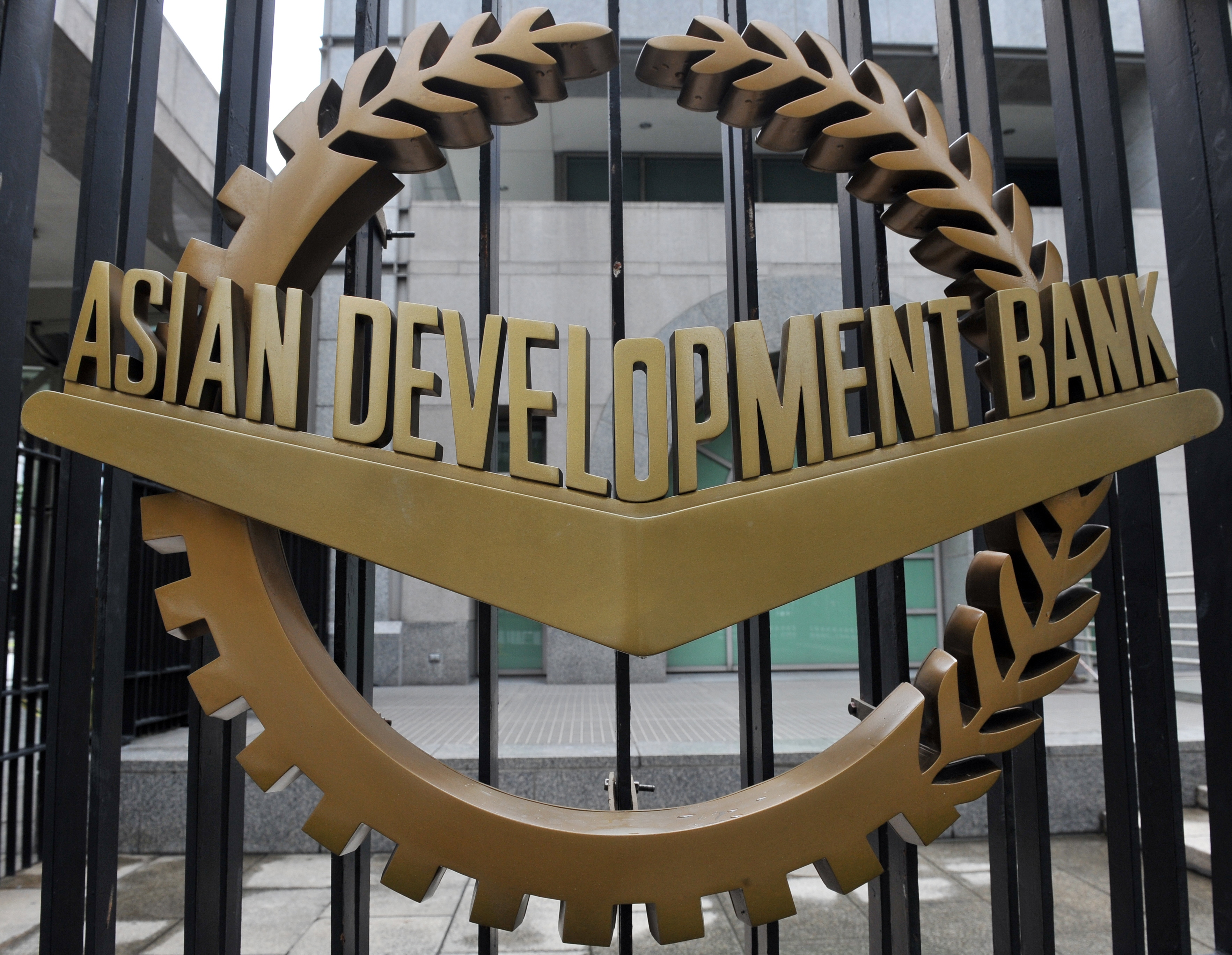
A picture shows the logo of the Asian Development Bank (ADB) displayed outside its headquarters in Manila on September 2, 2010. —File photo by Ted Aljibe | Agence France-Presse
The Asian Development Bank (ADB) kept its growth outlook on the Philippines for this year and next but warned of any changes in US policies following Donald Trump’s victory that could dent the growth of Asia and the Pacific region.
In an update to its Asian Development Outlook (ADO) report released on Wednesday, the ADB maintained its gross domestic product (GDP) growth forecast for its host country at 6 percent for this year and a faster expansion of 6.2 percent for 2025.
If realized, growth this year would hit the low end of the revised 6 to 6.5 percent target range of the Marcos administration for this year. It would also settle within the 6 to 8-percent expansion goal of the government for 2025 until the end of President Ferdinand Marcos Jr.’s term in 2028.
READ: World Bank trims PH growth outlook
At the same time, the Philippines would emerge as the second-fastest-growing economy in Southeast Asia behind Vietnam, which is projected to grow by 6.4 percent and 6.6 percent in 2024 and 2025, respectively.
But ADB said geopolitical tensions, heightened trade protectionism, and climate change-induced disasters pose risks to growth, particularly in agriculture and infrastructure.
“While Vietnam sees rising foreign investment, other Southeast Asian economies like Indonesia and the Philippines are on track to meet previous growth forecasts,” the bank said.
Latest data showed the Philippines economy posted a below-market consensus growth of 5.2 percent in the three months ending in September, which was the weakest reading in more than a year following the onslaught of storms that disrupted government spending and damaged farm output.
Average GDP growth stood at 5.8 percent in the first nine months. This means the economy would have to grow by at least 6.5 percent in the fourth quarter to meet the low end of the state’s growth target for 2024.
Moving forward, ADB said changes to US trade, fiscal, and immigration policies could dent growth and add to inflation in developing Asia and the Pacific economies like the Philippines.
The effects on the region would most likely materialize from 2026, it added, but impacts could be seen sooner if the policies are implemented earlier and more rapidly than expected or if US-based companies front-load imports to avoid potential tariffs.
“Strong overall domestic demand and exports continue to drive economic expansion in our region,” said ADB chief economist Albert Park.
“However, the policies expected to be implemented by the new US administration could slow growth and boost inflation to some extent in the People’s Republic of China, most likely after next year, also impacting other economies in Asia and the Pacific,” Park added.

